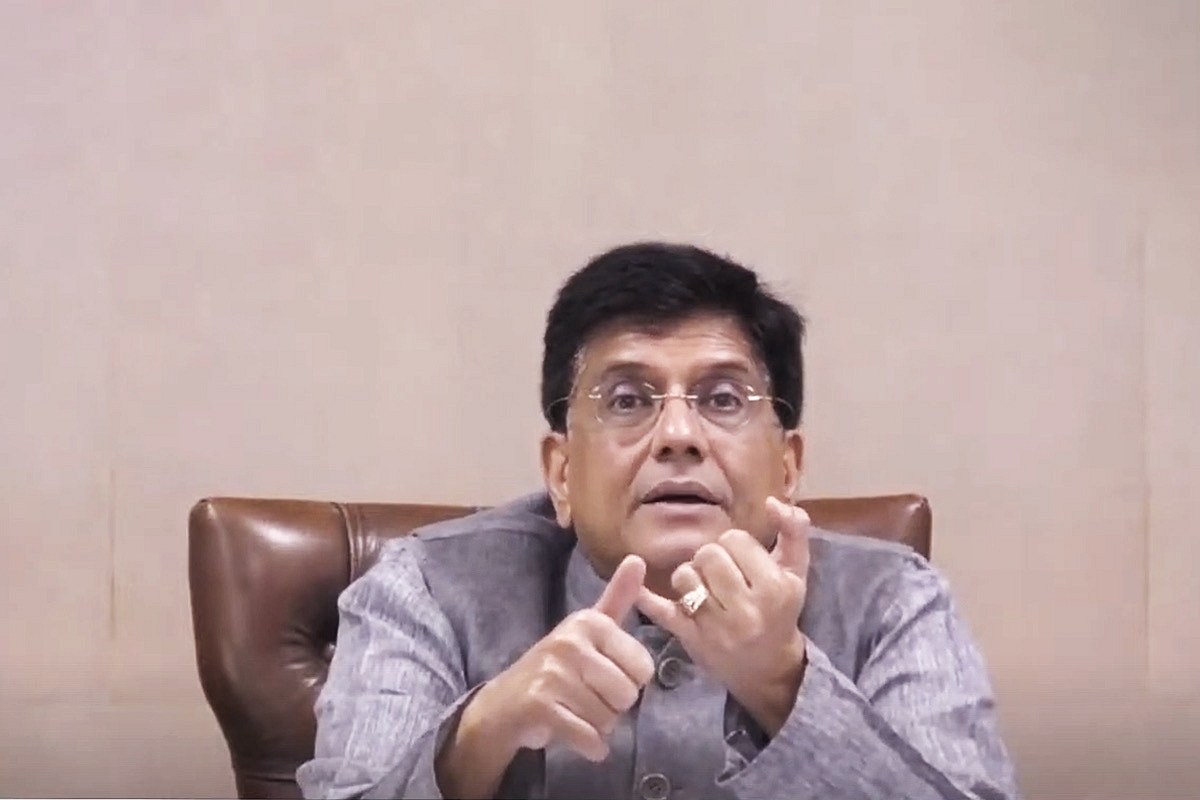News Brief
Piyush Goyal: Free Trade Agreements Good For India, Need To Leverage FTAs With Nations Having Transparent Trading Mechanisms

Swarajyamag
Free trade agreements are good for the nation and India must look to leverage these pacts with countries having transparent trading mechanisms and business systems, Commerce and Industry Minister Piyush Goyal said on Saturday (Nov 28).
Goyal was delivering the inaugural address of the webinar series ‘The Road To Atmanirbhar Bharat' organised by Swarajya in association with Vedanta Resources Limited.
Goyal said India should focus its energy on FTAs initially with developed countries that are looking for market access in the large Indian market and which can open their doors for domestic goods as well.
Goyal said India should focus its energy on FTAs initially with developed countries that are looking for market access in the large Indian market and which can open their doors for domestic goods as well.
"I believe, per se FTAs are not bad, FTAs are good for the nation and we must look to leverage FTAs with counties with whom you have transparent trading mechanisms, who are working with transparent business systems and with whom you (Indian industry) can engage from a position of strength for certain products where you are looking at market access in those countries," Goyal said.
"I think the countries with whom we have reciprocal and equitable relations are where we will focus our energies for future FTAs," Goyal added.
Goyal said that in free trade agreements (FTAs) with countries including Japan, Korea, and Asean, business communities of these regions benefited more by getting market access in India.
"...we could not benefit from corresponding market access in those countries," he said adding now the effort is to expand domestic manufacturing abilities and being more reciprocal in trade with other countries.
One of the primary reasons why India could not join RCEP (Regional Comprehensive Economic Partnership) pact was that some of the members do not "really" have democratic transparent trading systems, the minister said.
"And when you are dealing with an unfair partner, a partner which does not really give a level playing field or reciprocal access or where there is a risk of predatory pricing , where there is a risk of circumvention of country of origin rules, one does have to be cautious," he added.
When asked about support measures for the exporting community, the minister said the government may not be in a position to actually give export incentives per se to promote outbound shipments.
"We really cannot give any specific incentives to exports given the WTO (World Trade Organisation) framework in which we are all doing business today. At the end of the day, if we start doing that, there will be retaliatory action from other countries," he said.
The minister stated that the idea of extending support measures under PLI (production linked incentive) scheme, is to boost manufacturing at large volumes and with that businesses can serve both domestic and international markets.
"...when you manufacture at such large volumes and we are encouraging large scale manufacturing , obviously you will serve Indian market but you will have large surpluses to serve international markets. So direct, indirect you are supporting the export market. So it's a very well thought out scheme," he said.
Besides, he said the government is working to reduce logistics cost, and making the paper work easier for exporters.
"We will continue work with banks to provide low cost finance to our exporters...We really have to provide them a level playing field compared to other parts of the world , but may not be in a position to actually give export incentives per se to promote exports and I believe that subsidies are like crutches," he added.
About PLI, Goyal said that 10 more sectors are now covered under this scheme, that will cost nearly Rs 2 lakh crore over the next five years.
This Rs 2 lakh crore, he said, has the ability to create an ecosystem which will expand India's domestic manufacturing "by not less than Rs 20 lakh crore every year".
"And when you are adding Rs 20 lakh crore manufacturing ecosystem in India, even if you take a conservative 30 per cent as labour or salary wages or the component of labour direct and indirect , you are looking at Rs 6 lakh crore going into the hands of the people of India," he said adding "you are looking at over three crore people getting well paying good working opportunities".
Further he said the ministry is identifying more and more sectors which may not need PLI but which may need de-regulation, some hand holding or other form of support or incentive.
Talking about railways, he said the railways ministry is looking for more Indian suppliers for everything that the sector needs.
Currently, railway is procuring under 2 per cent of the current procurement from outside the country and it plans to replace that also with Indian products, Goyal, who also holds the railways portfolio, said.
Support Swarajya's 50 Ground Reports Project & Sponsor A Story
Every general election Swarajya does a 50 ground reports project.
Aimed only at serious readers and those who appreciate the nuances of political undercurrents, the project provides a sense of India's electoral landscape. As you know, these reports are produced after considerable investment of travel, time and effort on the ground.
This time too we've kicked off the project in style and have covered over 30 constituencies already. If you're someone who appreciates such work and have enjoyed our coverage please consider sponsoring a ground report for just Rs 2999 to Rs 19,999 - it goes a long way in helping us produce more quality reportage.
You can also back this project by becoming a subscriber for as little as Rs 999 - so do click on this links and choose a plan that suits you and back us.
Click below to contribute.
Latest